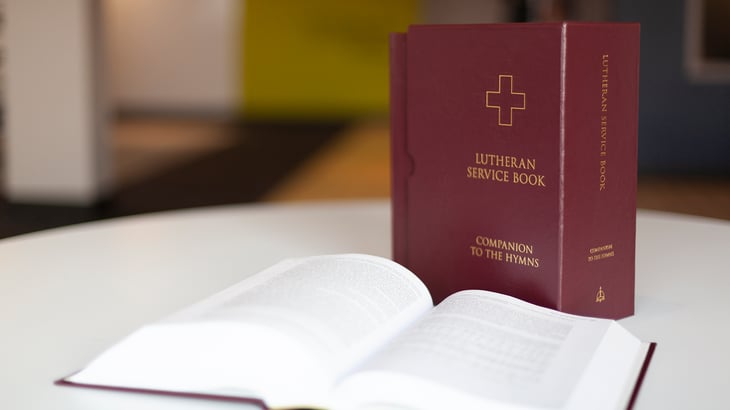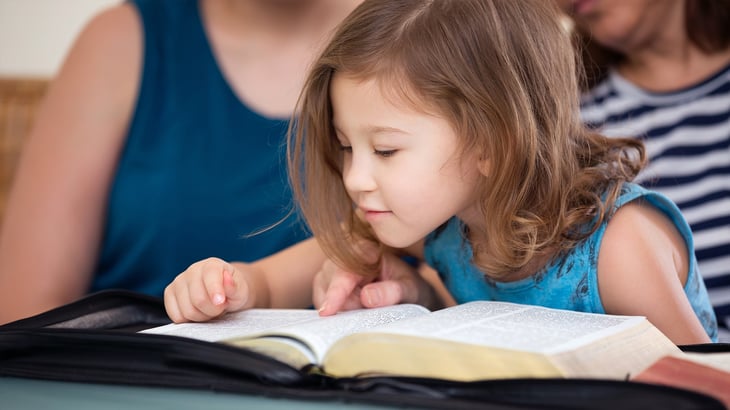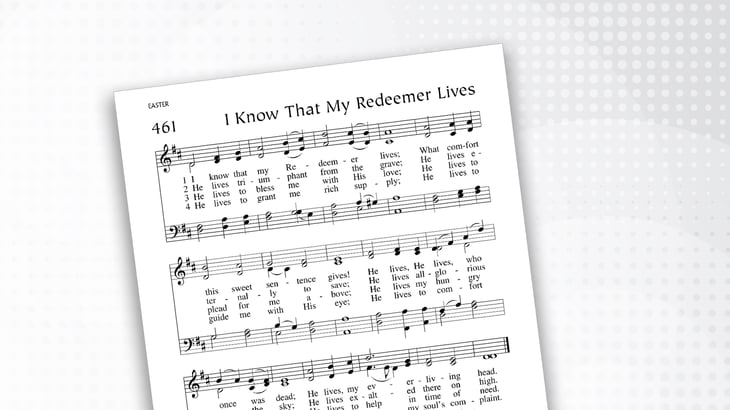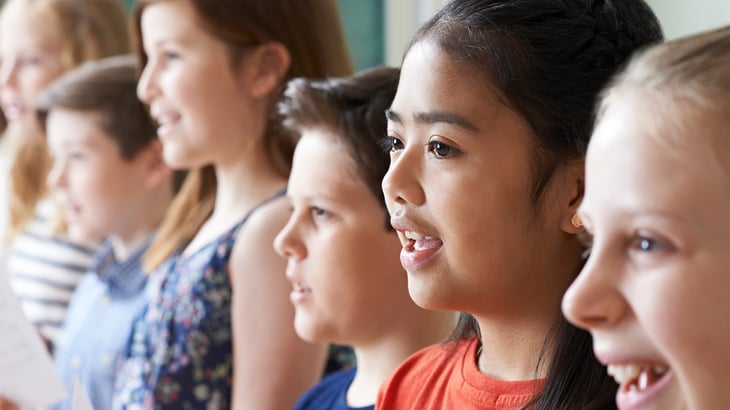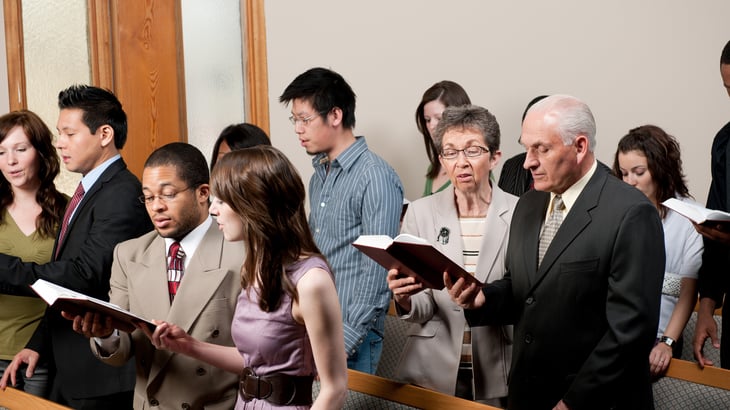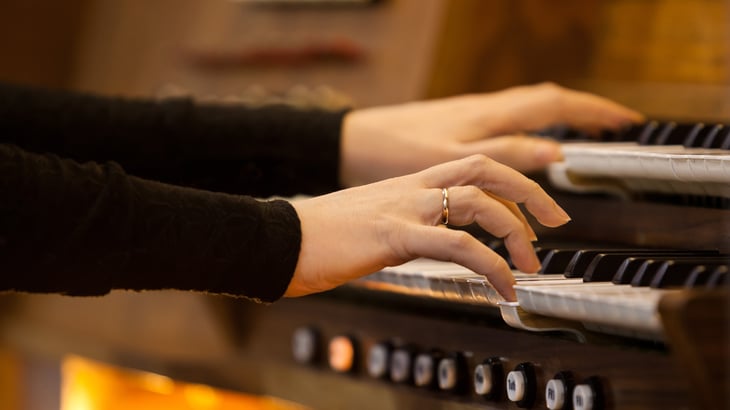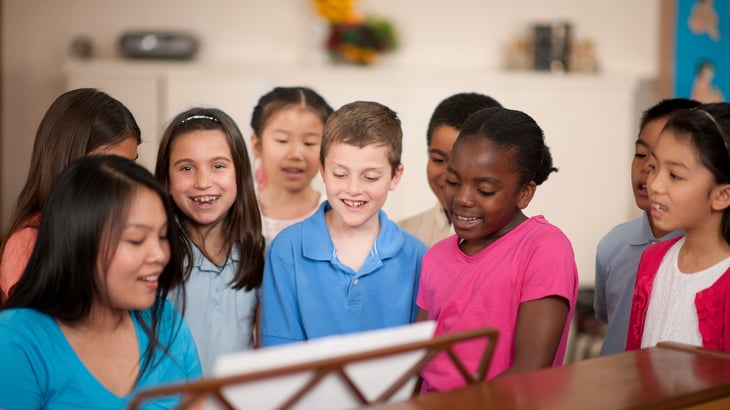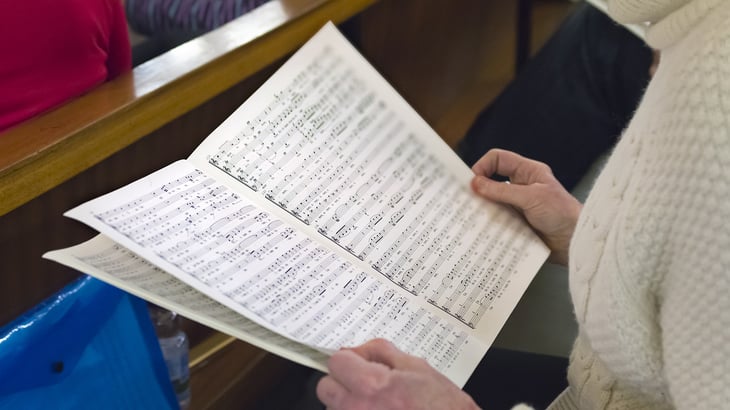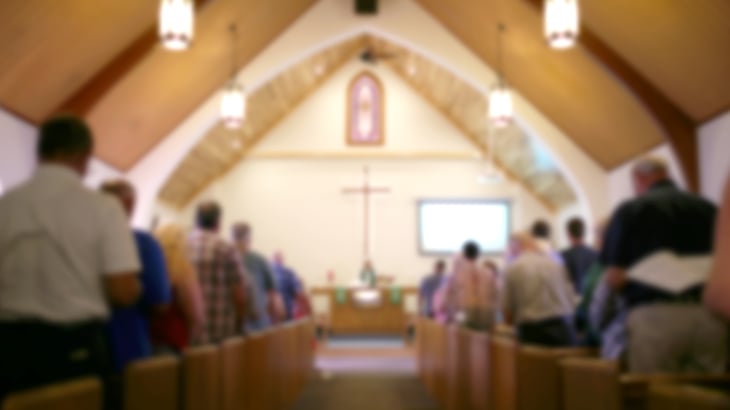The Reformation’s First Lutheran Hymns
This excerpt is from “The Reformation and Lutheran Confessionalism to 1620” by Christopher Boyd Brown. Read the entire essay and learn more about the Reformation and its impact on Lutheran worship in Lutheran Service Book: Companion to the Hymns.
Holy Spirit, Breathe on Us
Thou camest to our hall of death,
O Christ, to breathe our poisoned air,
To drink for us the dark despair
That strangled our reluctant breath.
So writes Martin Franzmann in my school’s hymn of the year: “O God, O Lord of Heaven and Earth” (LSB 834). With strong and striking text, he could almost be predicting our 2020 world of “poisoned air” and “reluctant breath,” thanks to the awful virus. It may be a novel coronavirus, but there is nothing novel about sickness and death, though it is fresh in our minds these days. Since our first parents partook of the fruit of the forbidden tree, our air has been poisoned, our breath both reluctant and short, and our despair, indeed, dark.
Using a Children’s Hymnal at Home, Church, and School
What’s the very first thing you do when you get to church on Sunday morning? With social distancing it might look a bit different right now, but do you usually greet the people around you? Sip the coffee you grabbed from the refreshments table? Sit down, pray for a few minutes, and center yourself for worship? As a long-time music lover (and player), the first thing I always did was look up what we would be singing for the day. Knowing which hymns would ring out during service was important to me, not only to see if we’d sing my favorites but also to see what the service was going to be about.
How 6 Popular Lutheran Service Book Hymn Tunes Got Their Names
Think about your favorite hymn in Lutheran Service Book. If you have a hymnal handy, take a minute to look it up. In the bottom right corner of the page, there’s probably a name listed in all capital letters—this is the hymn tune. Some are simple, like CAROL or GREENSLEEVES. Others are phrases, often in Latin or German.
Teaching the Faith with Catechism Hymns
Music is a wonderfully underrated teaching tool. Think back to your childhood. Can you remember singing your ABCs? What about the catchy tunes from Schoolhouse Rock!, which covered history, math, science, and grammar? It’s not surprising that many educators use music to help their students learn and memorize curriculum.
Martin Luther was extremely familiar with the concept of music as a teaching tool. In fact, Luther wrote six catechism hymns, one for each of the Six Chief Parts of the Small Catechism. He knew that by putting the words of Christian doctrine next to a hymn tune, it would help the people to remember the words and their meaning more easily.
Reflection on 'There is a Balm in Gilead'
The past several months in this country have made many weary, worn out, and tired. From fighting a pandemic to fighting racial injustice, there have been difficulties in neighborhoods from coast to coast. During these times of struggle and injustice, the meaningful message of hymns continues to provide comfort and point people to Christ.
In today's post, read Dr. Joseph Herl's commentary on one well-known African American Spiritual hymn, “There is a Balm in Gilead” (LSB 749), from Lutheran Service Book: Companion to the Hymns.
What Songs Are Stuck in Your Head?
I was leaning into the fridge and looking for a snack when the blasphemous lyrics popped into my head from out of nowhere.
It was a line from a song by a band my husband and I had recently seen in concert. Their songs are relatively clean, any crude or uncouth language typically warranted by the dark life circumstances they detail, things like broken homes and hurt people. This band sings about these things as a way to cope with a sinful world, not in order to praise them; however, it is not a Christian band.
Uniting Church Hymns throughout Time and Place
This summer, One and All Rejoice, a new children’s hymnal for K–8 students, will be released. There are two hundred well-loved hymns along with newer songs debuting in this hymnal. Among them are six modern hymns that can be used throughout the Church Year. Learn more about the hymns below, and listen to them on the One and All Rejoice playlist.
The Women of Lutheran Service Book You Might Not Know About
Men have had an incredible impact on shaping Lutheran hymnody as it’s known today. From Paul Gerhardt to Dr. Carl Schalk, male hymnwriters have truly given Lutheranism foundational music that speaks volumes. But did you know that many female hymnwriters, hymn translators, and composers have also contributed to the creation of many Lutheran hymns? Read biographies below from Lutheran Service Book: Companion to the Hymns to learn about some of the wonderful women who helped bring Lutheran hymnody together for Christians everywhere to enjoy today.
The Church’s Song: Proclamation, Pedagogy, and Praise
To celebrate the release of Lutheran Service Book: Companion to the Hymns, here is an excerpt from Carl Schalk’s essay in Volume 2:
